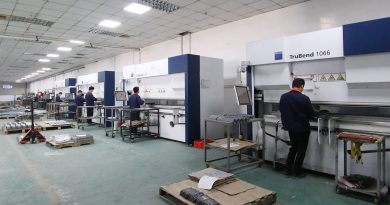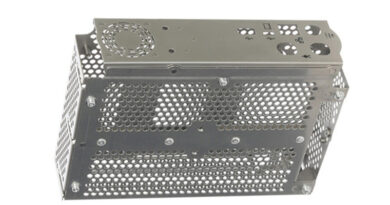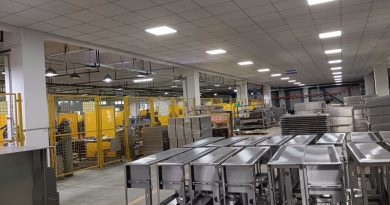Sand blasting
Sand blasting is widely used on metal surfaces
The purpose is to overcome and cover up some defects of aluminum alloy in the machining process and meet some special requirements of customers for product appearance.The principle is only to impact the accelerated abrasive particles on the metal surface to remove embroidery, deburring, oxide layer or surface pretreatment. It can change the finish and stress state of the metal surface. Commonly used sand materials include glass sand, emery, steel ball, silicon carbide, etc
Benefits of sand blasting process
Sand blasting process can be divided into pneumatic spray gun and impeller shot blasting. The advantage of sand blasting process is that it can remove the peak and remove the burrs after die casting, stamping, flame cutting and forging. It has better effect on thinner workpieces and burrs with pores. It can clean the residual sand particles in the sand casting process, clean the rust stains of cast iron or steel, and clean the deoxidized skin after thermal processes such as heat treatment, burning, hot forging and rolling. In coating application, it can remove the existing coating or protective layer, cover the defects on the casting, such as cracking or cold lines, and provide a glossy surface. In addition, in terms of surface stress, it can provide consistent roughening surface, oiling and spraying effect. When metal parts with high stress, such as springs and connecting rods, are continuously knocked locally, they will deform and show strengthening phenomenon. This strengthening effect requires the use of circular abrasives, such as gold non-embroidered steel shot, in high-energy shot blasting machine or special strong sand blasting machine. If the surface strengthening effect of the machine is to be measured, Almen test workpiece can be shot blasted or sandblasted, and then measure whether the deformation meets the requirements.
Principle of pneumatic spray gun
The air pressure input of the spray gun is mainly divided into direct pressure cylinder and indirect pressure injection. The direct pressure cylinder puts the abrasive in the pressure tank and applies 6-7bar atmospheric pressure to directly spray the abrasive. Its advantage is high pressure, but its disadvantage is that the operation needs to be suspended when the abrasive in the pressure tank is to be added. However, if continuous sand blasting is required for a long time without interruption, the double pressure cylinder design can be used to make it unnecessary to stop the operation when adding abrasive. The indirect injection type uses high-speed air flow to inhale abrasives. Its advantage is that adding Abrasives will not interfere with normal production, simple equipment and low investment, so it is the most common.
Among all types of sand blasting machines, the simplest is the sealed sand blasting chamber type. The operator can hold the workpiece through rubber gloves, step on the spray gun switch and observe the sand blasting process through the window. This kind of spray gun is often used together with impeller shot blasting. The spray gun is generally 150-200mm away from the workpiece and the processing diameter range is about 30mm. Secondly, sand blasting can also be divided into dry and wet. For example, pressure vacuum belongs to direct pressure type and dry type. It directly absorbs abrasive and is mainly used for on-site maintenance. The wet pressure belongs to the indirect injection type. It uses the mixing of liquid (water or oily liquid) and fine abrasive as the sand blasting step, which can provide a more detailed surface texture. However, wet sand blasting has many disadvantages. If it is not suitable for ferrous metal workpieces, it is easy to cause corrosion, and steel shot can not be used as abrasive for a long time. Therefore, if the process parameters are well controlled, dry sand blasting can also achieve the effect of most wet sand blasting, unless it is some special process or effect.




